Our team of matchmakers screen and set up dates for the best
singles in New York City and San Francisco. Dating shouldn’t feel
like a second full-time job - and with us, it won’t.
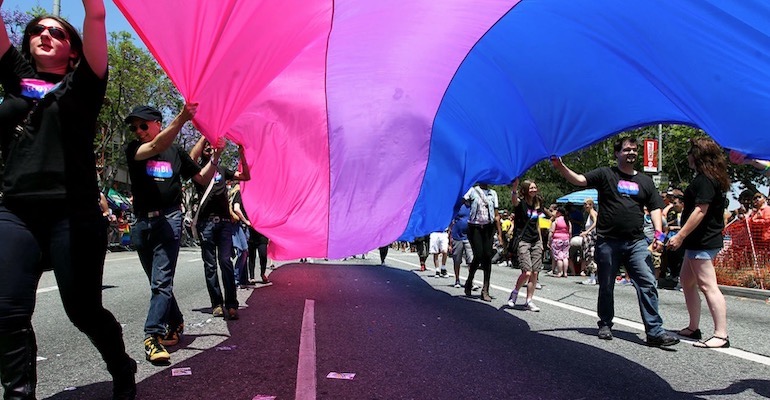
Figuring out your sexuality and finding love and support can be tricky at times, and sometimes it can be tricky for those supporting someone still figuring out their sexual orientation. Read up about what it means to be bisexual and how to find the support you need.
“I call myself bisexual because I acknowledge that I have in myself the potential to be attracted—romantically and/or sexually—to people of more than one sex and/or gender, not necessarily at the same time, not necessarily in the same way, and not necessarily to the same degree.” — Robyn Ochs
This definition by bisexual activist Robyn Ochs sums up brilliantly what being bisexual is—and what it is not.
Some men and women who refer to themselves a bi-sexual say they are only attracted to heterosexual men and women (cisgender). As you can’t necessarily tell if someone is straight, gay, or transgender, however, this may not be an entirely true statement, though it may be true that in their experience they have only ever been attracted to people whom they know to be straight. Others say they are attracted to people with a mixture of different sexual orientations and genders, such as gay, straight, queer, and transgender people, which sometimes mean they prefer to refer to themselves as pansexual, or pansexual and bi.
Also, many bi-sexual people define themselves as non-binary or transgender.
Not everyone who is bi like different genders equally. Research has found that about 43% who associate with being bi are equally attracted to me and women. 40% say they are more attracted to the opposite sex than same sex, while 4% say they are only attracted to the opposite gender. 12% say they are attracted mostly to their own gender, while 1% say they are only attracted to their own gender. About 88% of bisexuals who ware married are married to someone of the opposite sex.
As you can see, this study did not seem to account for attraction to non cisgender people—some people who identify as being more attracted to the opposite or same sex, may still be attracted to non cisgender people, too.
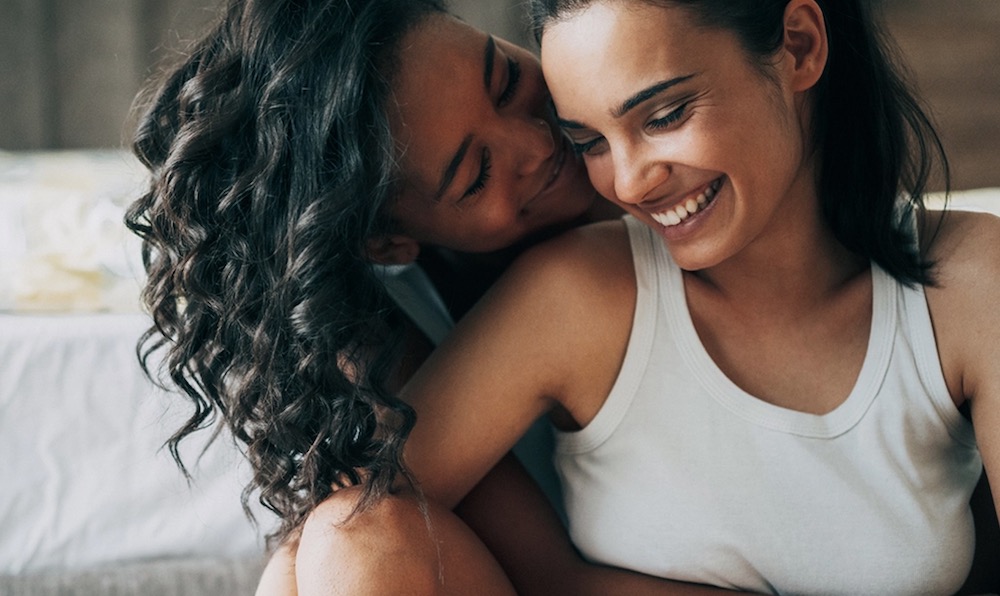
If you are bisexual and define yourself as a woman, marrying a straight man does not turn you straight. You can still feel attracted to both men and women, or other genders, depending on what your sexual preferences are. Similarly, a straight woman marrying a straight man won’t stop being attracted to other men just because she’s married—she simply chooses to be in a, potentially, monogamous marriage with one man.
On social media you’ll find people using the hashtag #StillBisexual to let the world know that they are not “taking sides” just because they fell in love with a person who happened to be one gender or another.
If you’re romantically attracted to more than one gender, it’s called being biromantic. Not everyone who is bisexual is biromantic. They may be sexually attracted to more than one gender, but only romantically attracted to one gender.
The opposite also holds true—not everyone who is biromantic is bisexual. For example, you might create romantic relationships with several genders, but only be sexually attracted to one gender.
If you’re sexually attracted to one gender and romantically attracted to another gender, it’s referred to as being cross, or mixed, orientation. This also includes people who are romantically or sexually attracted to different genders, but feel no sexual or romantic attraction to anyone. So you may be a woman romantically attracted to men and women, but feel no sexual attraction for them or any other gender group. Or you may be a woman romantically attracted to men but sexually attracted to women. In both instances, the term used to describe this is mixed orientation, or cross orientation.
Others who find that they are attracted to many different genders define themselves as pansexual.
What you define yourself as—if anything—is up to you. There is nothing saying what term you should use, or who you should disclose your preferences to.
Often bisexual people feel dismissed, or discriminated—even suffering from imposter syndrome—because there’s a longstanding myth that being bisexual is just a phase you’re going through. Or you’re gay, but too scared to admit it. Or you just want some attention—especially if you’re a woman. Not least because of how many men fantasize about having sex with two women or seeing two women having sex.
A lot of this likely has to do with misconceptions about gender and sexual attraction from past decades and, indeed, centuries. It’s only fairly recently that being anything but cisgender and straight has become acceptable—and only in certain countries and social circles. There’s still a lot of stigma attached to anything “outside the norm.”
Bisexual people don’t strictly belong to the gay crowd, nor the straight crowd and therefore sometimes feel like they don’t belong anywhere. With the advent of LGBTQ+ misconceptions and the sense of not belonging is slowly going away—at least in places around the world where the LGBTQ+ community is welcomed. Sadly, that’s not the case everywhere. And many people who are bi get discriminated similarly to those who are gay—homophobia exists in schools, work places, and organizations across the globe. This is why belonging to a community that offers supports is so crucial.
Note, that should your sexual preferences change and being bi was “just a phase” that’s OK too. We all change and evolve. Some of us have a “phase” of being a doctor, a “phase” of being a criminal and so forth. Sometimes we remain a doctor while also becoming an actor. Other times, we realize that we now identify as an actor and leave our doctoring days behind.
It’s also OK to realize you were never bisexual in the first place—maybe after experiencing sex with a certain gender you discover that you weren’t truly attracted to them. The idea was, perhaps exciting, but once you explore a sexual or romantic relationship with a particular gender you realize there’s no real attraction there. Or you might have been up for experimenting and trying different forms of sex with different genders, but there is no lasting attraction to several genders—only the one.
As we age, we explore our sexuality, come to realizations, and we also change at times.
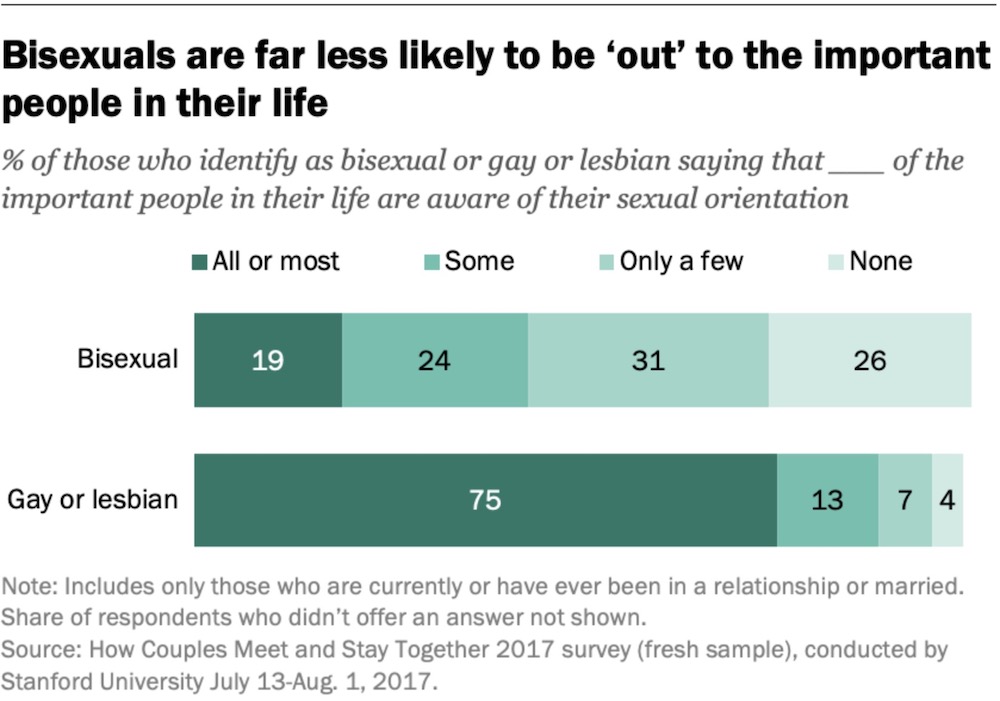
It appears in studies that LGB adults find online dating to be a more positive experience than straight adults and more LGB adults have found their current partner online compared to straight adults. However, the LGB population also experienced more harassment online, though mainly in the form of unsolicited sexual content (such as the unsolicited dick picks most people who do online dating get sent at one point, or another), or someone who was unwilling to stop contacting them. Thankfully, it’s easy enough to block someone online and most online daters likely feel a need to do that at some point.
That said, some also experienced online threats. It was unclear from the study if these came from fellow LGB adults, or someone who was harassing LGB adults due to their sexual orientation.
A lot of bisexual people report feeling invisible—as they’re either dating a man or a woman, people naturally assume they’re either straight or gay. They never think to stop to as if they happen to be bi. This is natural in that, percentage wise, people usually fall into one category or the other. However, it’s also a wakeup call for everyone that you shouldn’t assume. Remember that there are people who identify as neither gay nor straight—be it that they are bi, pansexual, queer, or something else—and be mindful that they might find it hard to “come out” if you’ve already started making assumptions.
Also, bear in mind that the reason bi people don’t always state up front that they are bi, is because discrimination still exists. If they don’t know you, they may not yet know if you discriminate against the LGBQT+ community. Don’t feel offended if they hold back—while you might be open minded, chances are they’ve come across people who aren’t. Which in this day and age seems bizarre, but sadly still happens.
Just because you’re attracted to both men and women doesn’t mean you’re polyamorous or want an open relationship so you can play both fields.
Being polyamorous means you are open to having several partners at the same time—you are free to love and have relationships with other and, possibly, random sexual encounters. Being in an open relationship means you can have sexual relations—and possibly relationships depending on how you’ve defined it—while in a relationship.
Just because bisexual people are attracted to people of more than one gender, it does not mean that they are polyamorous or want to be in an open relationship.
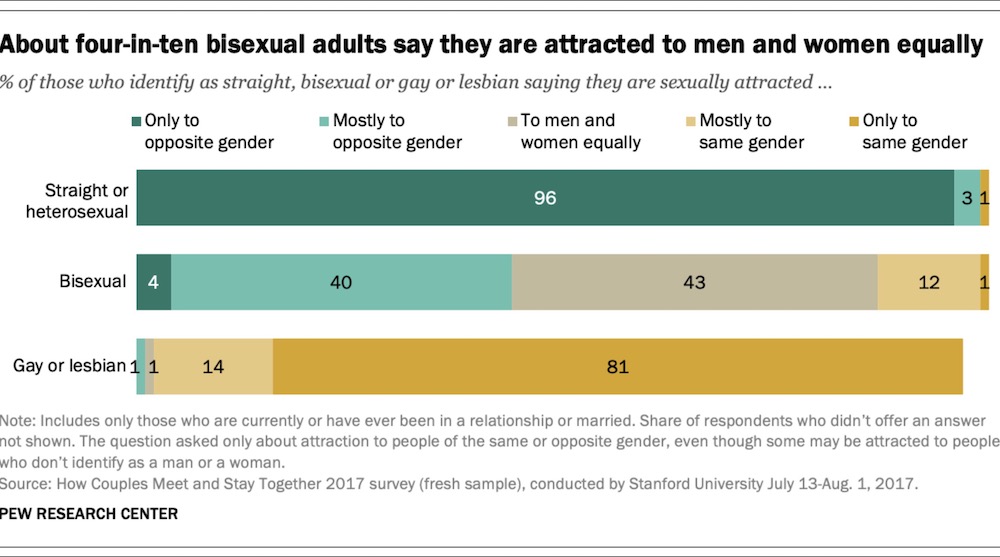
Possibly due to feeling discriminated or invisible, there are concerns that bi people are more likely to suffer anxiety and depression. It’s important, if you are bisexual, that you find groups and friends where you can get the support you need. It’s no secret that the support of family and friends help us feel good and live better lives. If you do not receive support form those sources regarding your sexuality, you have to seek it elsewhere. Even if you receive support from family and friends in all other areas, you need support around your sexuality, too.
For instance, “Lifetime rates of mood/anxiety disorders were higher among bisexual-identified women (58.7% for mood disorders, 57.8% for anxiety disorders) compared to lesbians (44.4% for mood disorders, 40.8% for anxiety disorders) and heterosexual women (30.5% for mood disorders, 31.3% for anxiety disorders). Lifetime rates of mood/anxiety disorders were also higher among bisexual-identified men (36.9% for mood disorders, 38.7% for anxiety disorders) compared to heterosexual men (19.8% for mood disorders, 18.6% for anxiety disorders), but rates were similar to gay men (42.3% for mood disorders, 41.2% for anxiety disorders). A recent meta-analysis of 12 population surveys in the United Kingdom found that bisexual individuals were more likely than monosexual individuals to meet criteria for being anxious or depressed, having low well-being, and endorsing symptoms of common mental disorders.”
Similarly, studies have found that bisexual men and women are more prone to substance misuse—and substances misuse is often a way to self-medicate when suffering depression or anxiety.
Sadly, belonging to a sexual minority also leads to a bigger chance of being rejected by your family. In turn, there’s a higher likelihood of becoming homeless. About 40% of homeless youth are LGBTQ+. Compared to only about 3.5% of the overall population identifying as being LGBTQ+ (numbers aren’t clear cut, but it’s certainly lower than 40%). Rejection from home also lead to higher rates of depression, drug use, unsafe sex, and suicide attempts.
While the creatives in LA are notoriously open minded about sexuality and gender, the characters they portray in movies and TV shows still adhere to stereotypes. How many bi men have you seen on the big screen or on Netflix as of late? Make that bi men of color and the number will go down even further. The issue with Hollywood, as well as most other big businesses, is that they appeal to the masses because that’s where the money is at. If the majority of the population is straight, they make movies and TV shows for straight people. That said, as inclusion and diversity have become trending topics, Hollywood follows suit. And outside the Western world, Nollywood, Bollywood, and so forth.
Even if you have support at home, ensure you join online and offline communities that support the LGBTQ+ community. Studies show that those who have social support have higher self-esteem and are overall happier.
You can check out communities like amBi, and resources for teens such as Sex. Etc. and Scarleteen.
Sadly, people who identify as bisexual appear to partake in more risky sexual behaviors. This may be due to underlying reasons, such as depression. It may also be because when having sex with same sex partners, there’s not a need for protection to prevent against pregnancy.
Note that many sexually transmitted diseases (STDs) are transmitted through contact and not just by penetrating the anus or vaginal canal. That’s why it’s important you and your partner get tested before sex. If you are under 26 you can also get the HPV vaccine to help prevent the spread of certain types of warts and cancers. As a woman you should also get regular pap smears so as to be able to detect cell changes that indicate cervical cancer—if detected early the procedure to remove it consists of scraping the area and is very simple. This can help prevent it from ever turning into tumors.
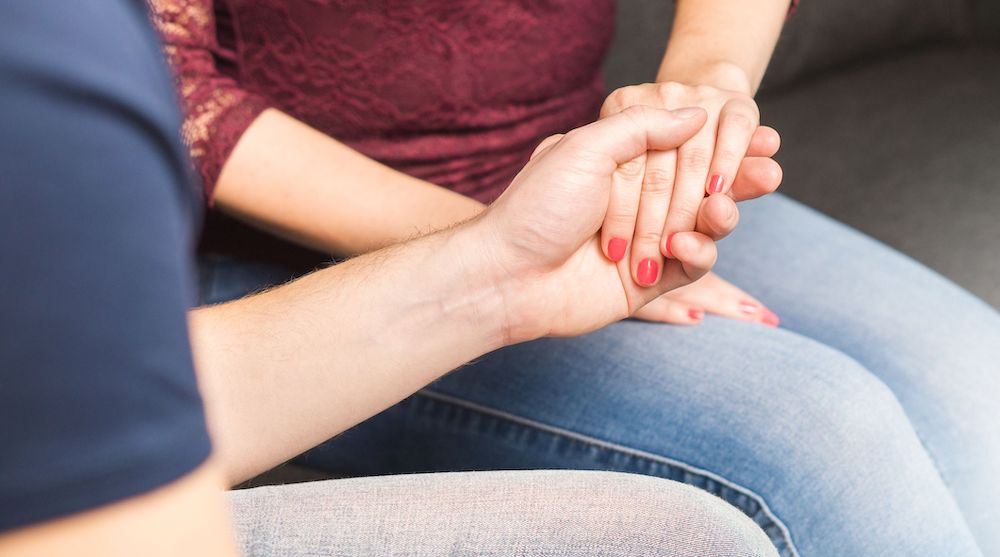
You should get tested regularly for any and all STDs, even if you don’t have a long term partner - many STDs can be cured with antibiotics and others, like HIV, it’s important you catch early to start a treatment plan. These days, people with HIV can live perfectly normal lives. If you take your HIV meds, your levels of HIV in the blood even go down so much it’s no longer transmittable, meaning you can’t give it to your partner.
If you decide to have casual sex with someone who you don’t choose to go and get tested with, practice safe sex. If using sex toys, wash them before changing from one partner to the other, or use condoms for the toys that you exchange between uses.
Likewise, if rubbing the vulva, penis, or anus, of your partner wash your hands before rubbing your own body parts, or use latex gloves that you can remove. Note that bacteria and viruses can get stuck in the nails, too, so if simply washing your hands, be sure to do so properly. If performing oral sex on a man, you can use a condom and on a woman a dental dam.
Lastly, if you’re a bisexual man penetrating a woman, or having anal sex with another bi man, you can use a condom. You can use that as a woman, too, if you’re fisting or doing anal play and prefer the feel of a condom to that of latex gloves.
The above might sound like a lot to remember, but once you get the hang of it, it’s pretty straight forward. What’s more, if you and your partner have been tested, you don’t have to do all the above.
For more detailed tips about practicing safe sex, check online resources such as sexual health tips for bisexual and gay men and women and the bisexual resource center.
Reading tips alone can still feel confusing at times, so it’s also important you talk to others. Remember—there’s a whole world of supportive people out there, you just have to make contact with them. Find online groups and offline resource centers near you.